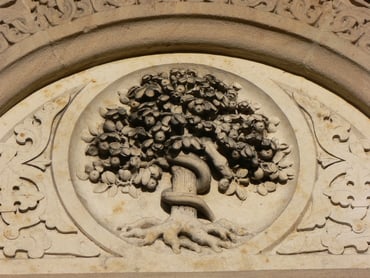252. That by the “woman” is meant the church, is evident from what was said above (n. 155) concerning the heavenly marriage. Such is the nature of the heavenly marriage, that heaven, and consequently the church, is united to the Lord by its Own, insomuch that these are in their Own, for without their Own there can be no union. When the Lord in mercy insinuates innocence, peace, and good into this Own, it still retains its identity, but becomes heavenly and most happy (as may be seen at n. 164). The quality of a heavenly and angelic Own from the Lord, and the quality of an Own, which, because from self, is infernal and diabolical, cannot be told. The difference is like that between heaven and hell.
Serpent

'Serpents,' in the Word, signify sensory principles which are the extremes of a person's life. This is because all animals signify affections of people, which is why the affections of angels and spirits in the spiritual world also appear at a distance as animals. Mere sensory affections appear as 'serpents.' This because serpents crawl on the ground, and lick the dust, and sensory things are the lowest part of the understanding and will, being most closely connected with the world fed by its objects and delights, which affect only the physical senses of the body. Harmful serpents symbolize sensory things dependent on the evil affections that form the interior motivations of the mind in people who, owing to the falsities accompanying evil, are irrational. Harmless serpents symbolize sensory matters dependent on the good affections that form the interior motivations of the mind in people who, owing to the truths accompanying goodness, are wise.
(References: Matthew 10, 10:16, Matthew 16)






